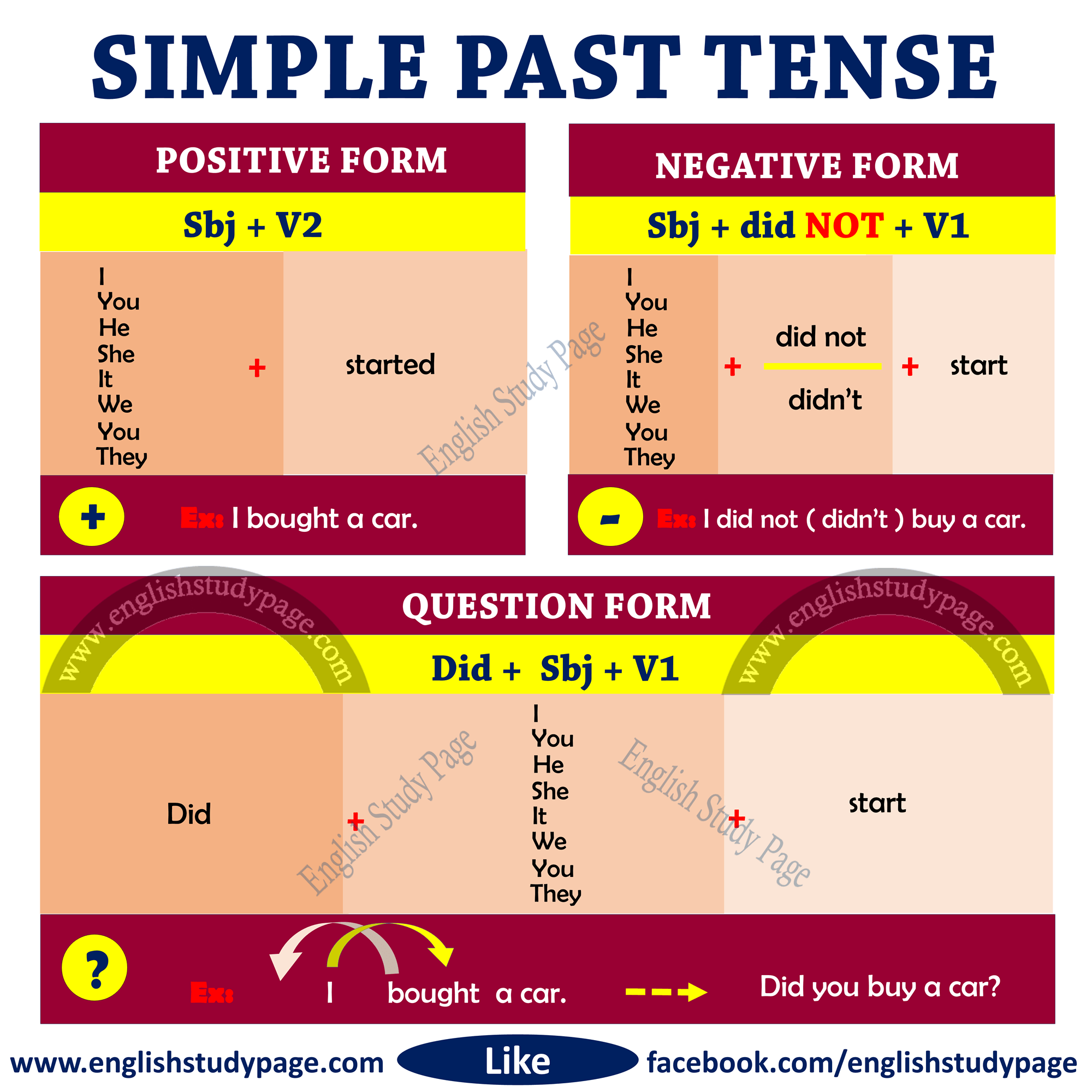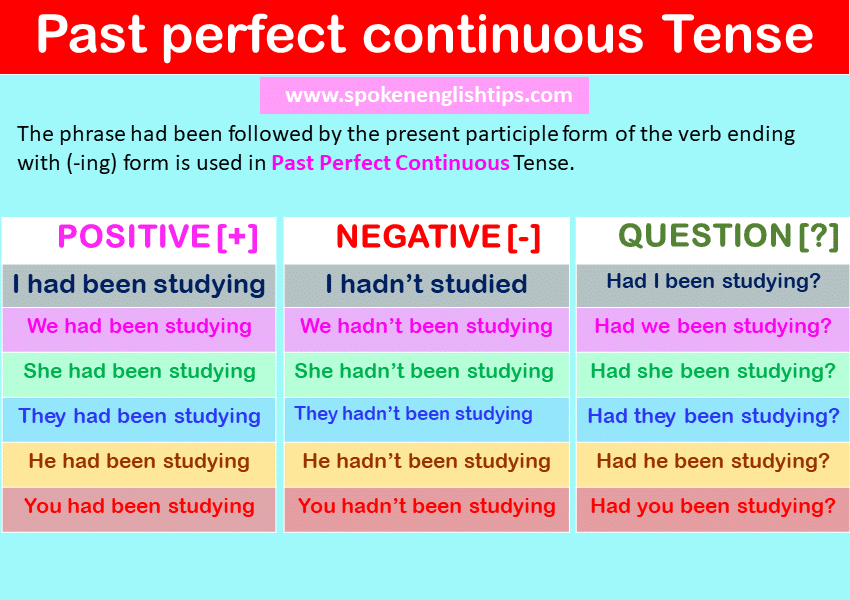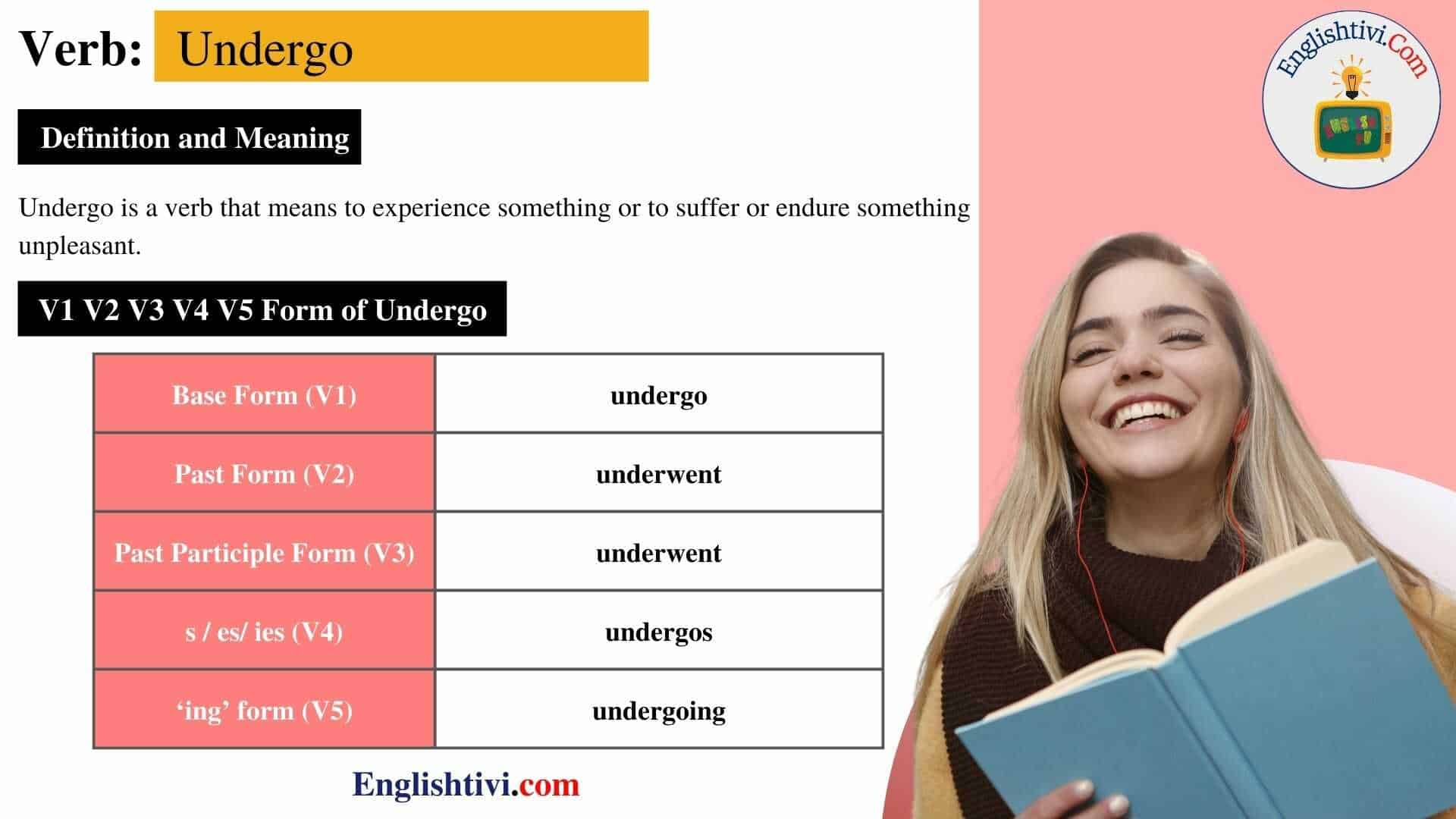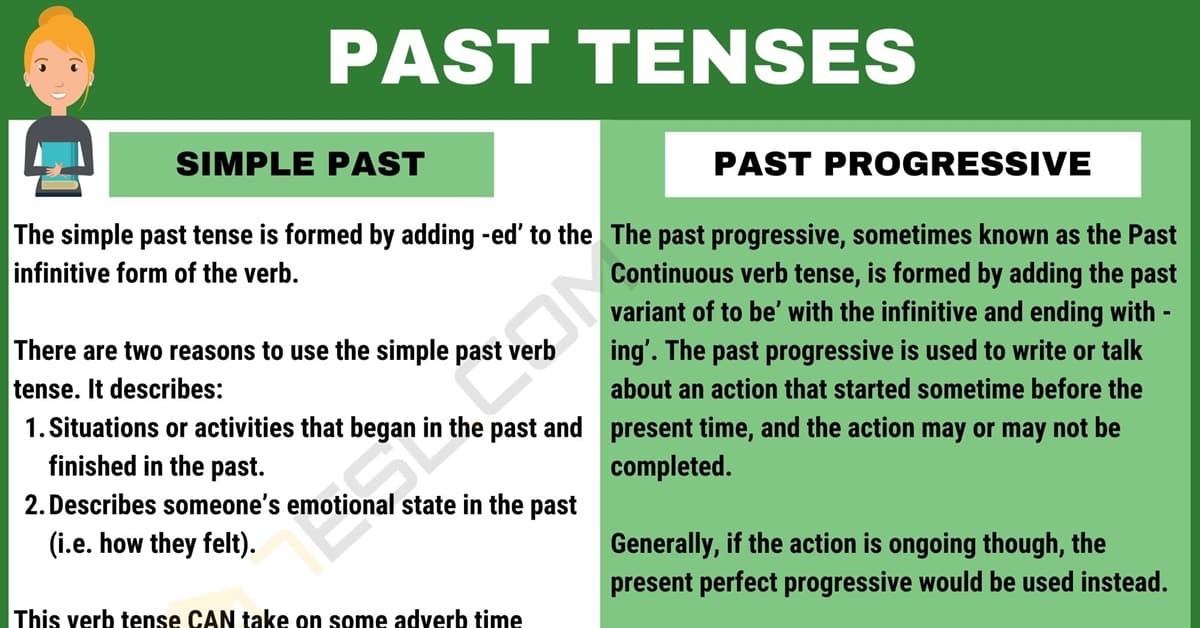
Undergoe Past Tense Verb Forms, Conjugate UNDERGOE
The past simple tense of "undergo" is "underwent", and the past participle is "undergone". Both are accurate and valid, though they're used in fairly different contexts. Even in spite of the fact that they're both technically past tense, they're not interchangeable at all.

Structure of Simple Past Tense English Study Page
Verb Table for undergo Continuous tenses Conditional Imperative Impersonal Simple tenses Present Past Present Perfect Past Perfect Will -Future Going to -Future Future Perfect Return to the dictionary Top of page Found an error? We appreciate your feedback. Click here! Continuous tenses Present Past Present Perfect Past Perfect Will -Future

Undergo Past Tense Verb Forms, Conjugate UNDERGO
Underwent is the simple past tense form of "undergo" and does not require an auxiliary verb. Use "underwent" to describe finished actions that happened at specific times in the past. Undergone is the past participle form of "undergo" and must be paired with an auxiliary verb like "has" or "had.". Utilize "undergone" to.

Past Tense Past Tense And Its Forms Past Tense Examples, Formula
verb the past tense of undergo Collins English Dictionary. Copyright © HarperCollins Publishers Word Frequency

Undergo V1 V2 V3 V4 V5 Base Form, Past Simple, Past Participle Form of
Past Continuous Tense He/She/It was undergoing. I was undergoing. You/We/They were undergoing. Past Perfect Tense He/She/It had undergone. I had undergone. You/We/They had undergone. Past Perfect Continuous Tense He/She/It had been undergoing. I had been undergoing. You/We/They had been undergoing. Simple Future Tense He/She/It will/shall undergo.

Conjugation Undergo 🔸 Verb in all tenses and forms Conjugate in past
The past tense (past participle) form of "underwent" is "underwent." The infinitive of the word form is "underwent." The present participle form is "undergoing." The past tense form is "underwent" and past participle form is "undergone." Understanding verb tenses The general grammar rules that govern past tenses are as follows.

UNDERGO Synonyms and Related Words. What is Another Word for UNDERGO
Past Tenses Present Tenses Future Tenses Most Common Irregular Verbs The two most common irregular verbs in English are "be" and "have." These pages give more details about these two verbs: the verb "to be" the verb "to have" Here are the next 10 most common irregular verbs in English: see, say, go, come, know, get, give, become, find, and think

12 Tenses in English DeclanaddWright
Simple past english underwent Past participle english undergone More information Full conjugation of "to undergo" Translations for "to undergo" Full conjugation of "to undergo" Indicative Present I undergo you undergo he/she/it undergoes we undergo you undergo they undergo Present continuous

Past Simple Tense (Simple Past) Definition, Rules and Useful Examples
past participle: (to) undergo undergoing undergo ne definition in Spanish in French in Italian Indicative Perfect tenses Continuous (progressive) and emphatic tenses Compound continuous (progressive) tenses Conditional Imperative Subjunctive *Blue letters in conjugations are irregular forms. ( example)

Irregular Past Tense Verbs 75+ Important Irregular Verbs List ESL
Understanding Past Tense As an English learner, understanding past tense is crucial to be able to communicate effectively. In this section, we will focus on the past tense of the verb "undergo." To form the past tense of "undergo," we use the past simple tense "underwent" or the past participle "undergone."

Undergo V1 V2 V3 V4 V5 , Past Tense, Past Participle Form of Undergo
Conjugation of the verb Undergo in all tenses: future, present and past. 🎮 Conjugation trainer for memorizing forms.

Irregular Past Tense Verbs 75+ Important Irregular Verbs List ESL
Definition of 'undergo' Word Frequency undergo (ʌndərgoʊ ) Word forms: undergoes3rd person singular present tense, undergoing present participle, underwent past tense, undergone past participle transitive verb If you undergo something necessary or unpleasant, it happens to you. New recruits have been undergoing training in recent weeks.

Verb Tenses Chart in English Grammar [Download PDF] English Grammar
The imperative mood is a grammatical mood that forms a command or request.. An example of a verb used in the imperative mood is the English phrase "Go." Such imperatives imply a second-person subject (you), but some other languages also have first- and third-person imperatives, with the meaning of "let's (do something)" or "let them (do something)" (the forms may alternatively be called.

Past Tense Definition, Rules and Examples of Past Tenses • 7ESL
to experience something that is unpleasant or something that involves a change: She underwent an operation on a tumour in her left lung last year. Playing board games is undergoing a revival in popularity. Fewer examples He seems to have undergone a change in attitude recently, and has become much more co-operative.

Undergo Verb Forms Past Tense, Past Participle & V1V2V3
Verb Tenses Past simple — undergo in past simple underwent (V2) . Future simple — undergo in future simple is undergo (will + V1) . Present Perfect — undergo in present perfect tense is underwent (have/has + V3) . Past Perfect — undergo in past perfect tense is underwent (had + V3) . undergo regular or irregular verb?

Spend Past Tense Brain
Undergo in Past Simple (Indefinite) Tense. Singular. Plural. I underwent. We underwent. You underwent. You underwent. He/She/It underwent. They underwent.